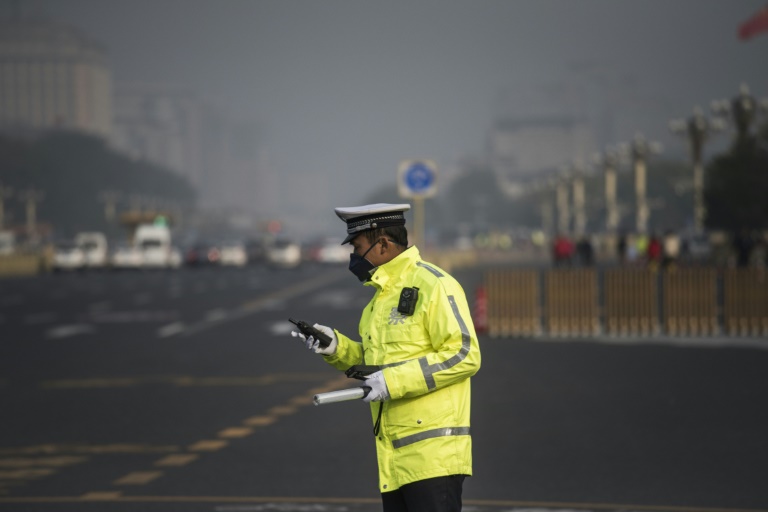Load shedding returns: Eskom announces power cuts for Saturday night
Despite all-out efforts to give the Chinese Communist Party blue skies for its twice-a-decade congress, Beijing’s notorious smog has cloaked the mega-city in its trademark toxic haze.
The capital typically enjoys an unusual succession of clear days when the party holds major events, with smoke-churning factories ordered to shut down.
Even restaurants famous for flavourful shish kebabs turned off their barbecues, with a waiter telling diners at one eatery this week that the lamb delicacies would be off the menu during the congress.
President Xi Jinping had invoked the fight against air contamination during his wide-ranging speech to open the congress on Wednesday.
“We need to prevent pollution from its source, continue the action against air pollution, and win the battle for blue skies,” Xi said.

China’s national air quality forecasting system attributed the pollution to low atmospheric pressure and weak winds, with “medium to heavy pollution” forecast for Saturday in the region
But the smog appeared to have not received the party directive as it enveloped the city all week, prompting many Beijingers to don masks for protection.
The counts of PM2.5 — harmful microscopic particles that penetrate deep into the lungs — reached 115 Friday afternoon, according to readings from the US embassy.
The World Health Organization’s recommended maximum exposure is 25 over a 24-hour period.
“It looked polluted out the window so I put on my mask,” said Euphie Zheng, on the way to her IT job in central Beijing.
– ‘APEC Blue’ –
China’s national air quality forecasting system attributed the pollution to low atmospheric pressure and weak winds, with “medium to heavy pollution” forecast for Saturday in the region.
Beijingers have coined terms for past events that bring purer air as the government shuts down factories and introduces other measures to limit pollution.
In Spring there was “two meetings blue” for the clear skies enjoyed during the session of China’s rubber-stamp parliament.
In 2014, then US President Barack Obama was welcomed with pristine air for the Asia-Pacific Economic Cooperation forum. Beijingers deemed it “APEC Blue.”
For the party congress, “I was expecting blue skies,” said Primavera Liu, a 33-year-old translator speaking through a grey smog mask. She did not think the smog would affect the political machinations underway.
“Xi’s probably used to the pollution,” she said. “It’s normal.”
In recent years, the Chinese have become more attuned to the hazards of air pollution.
A new study published in The Lancet medical journal this week reported that pollution claimed nine million lives worldwide in 2015. Almost half of those deaths occurred in India and China.
Another study found air pollution in northern China cut life expectancy by three years, compared with southern China.
The study, published in September by the University of Chicago, looked at life expectancy north of the Huai River, where the government supplies residents with coal-fired heat in winter.
– ‘Halt production’ –
In 2014, Premier Li Keqiang declared “war” on pollution. This winter, Beijing and surrounding provinces have introduced new restrictions on industrial production to fight pollution.
Liu, a native of industrial Tangshan, 180 kilometres (110 miles) east of Beijing, was not hopeful.
“The factories don’t follow orders,” she said.
On Friday in Tangshan, three employees at steel mills told AFP the factories had halted production.
“The government has ordered us to halt production,” said Wang, an employee at an iron and steel mill who declined to give his full name because he was not authorised to speak with the media.
In Beijing’s business district, a security guard for a construction site said they too had stopped work.
“All construction sites have stopped so there’s no pollution for the 19th Party Congress,” said the greying guard Chen Jian. He could not explain the thick haze on Friday.
“The directive we received said it was the climate.”
Download our app